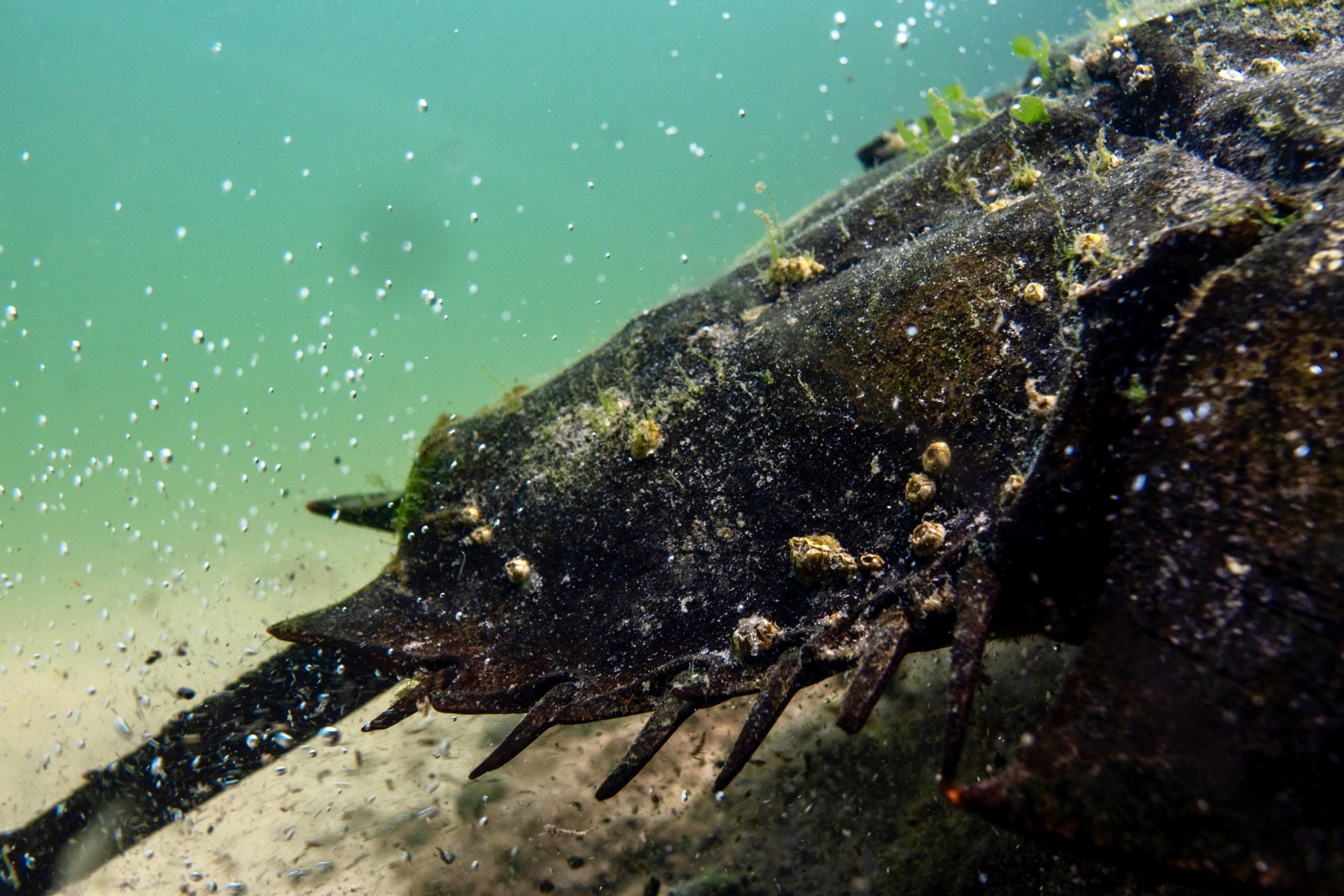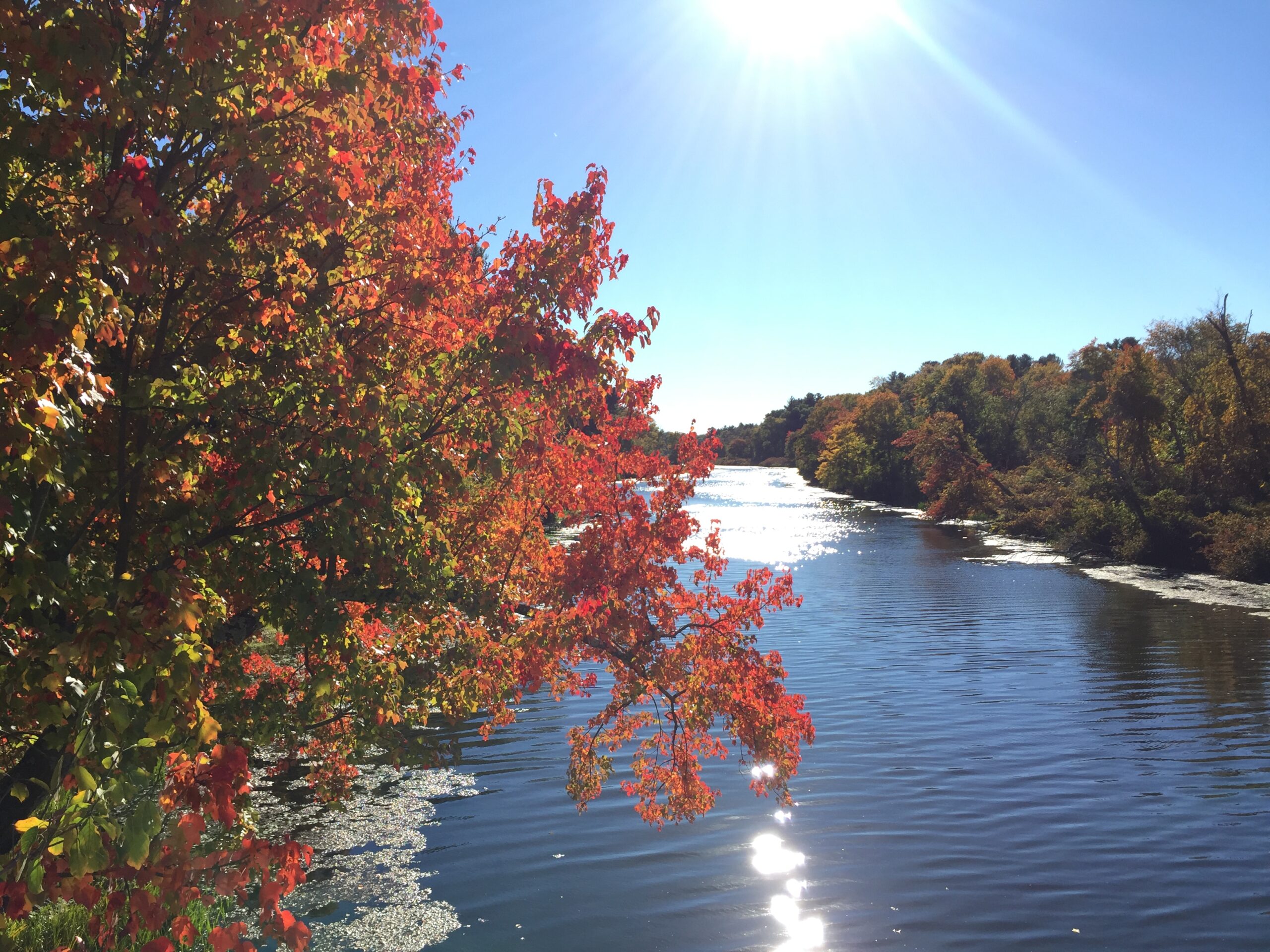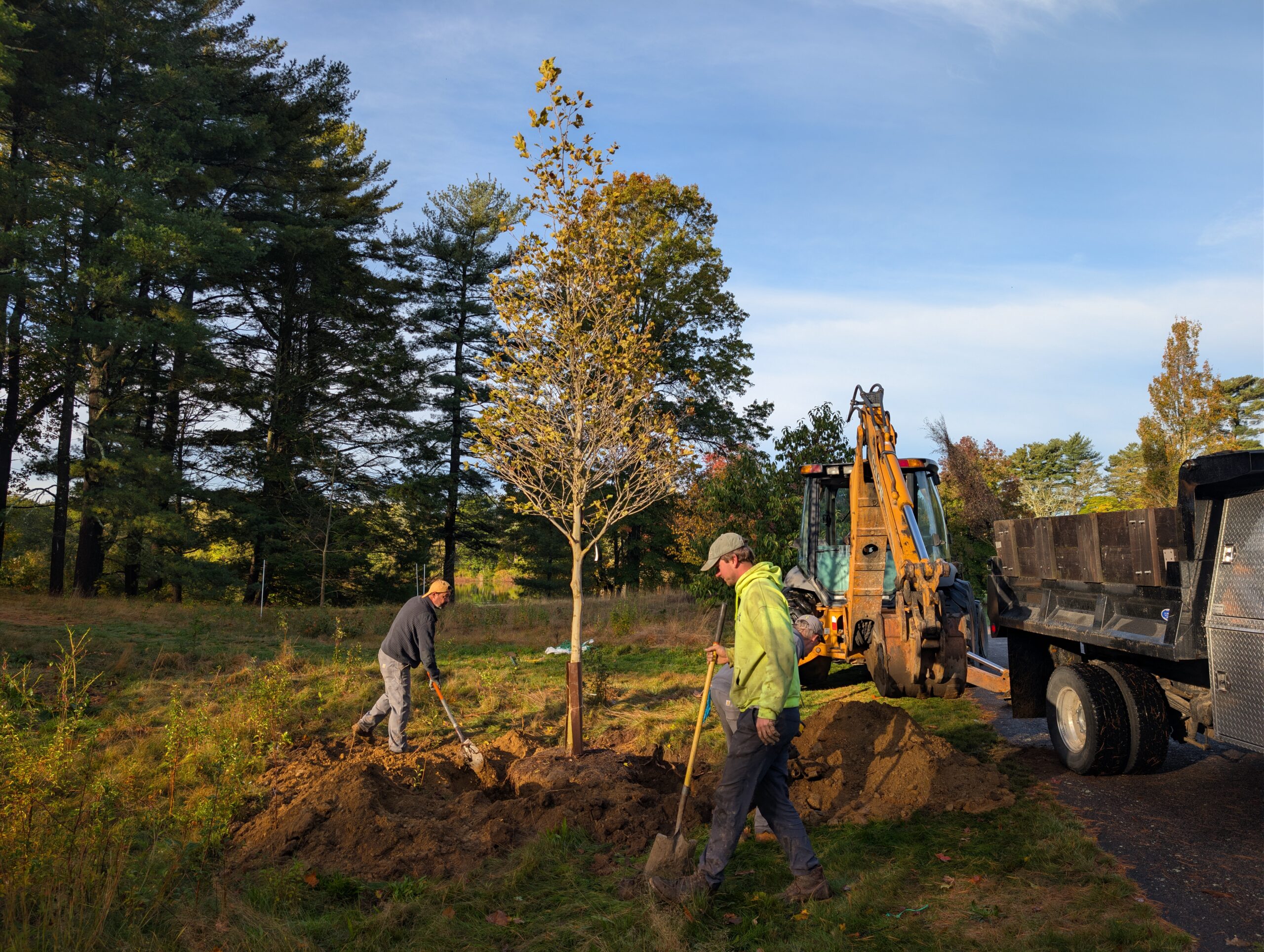Soon afterwards our coastal team launched a nature-based remediation project to restore damaged salt marsh, and help it to keep pace with sea level rise, initially with 85 acres of salt marsh at Old Town Hill Reservation. Since summer 2018 that project has expanded to include over 300 acres of salt marsh, across Newbury, Essex and Ipswich.
After a period of monitoring, design, and securing the necessary permits, restoration work launched at Old Town Hill in late April. The Newbury and Essex parcels are currently working through the permitting phase.
“This marks the first time a project of this type— using the ‘ditch remediation’ technique—has been permitted in Massachusetts,” says Russell Hopping, Trustees Lead Ecologist, Coastal Ecology. “There are many layers of permitting involved for our coastal wetlands and salt marsh, especially in an Area of Critical Environmental Concern (ACEC), and the current regulations provide very little wiggle room for new restoration methods given the importance of salt marsh. The regulators involved were very supportive and saw the merit in its implementation as a means of helping the marsh be more resilient to sea-level rise, a serious threat to our coastal marshes.”
Over time historic ditching processes have compromised the resilience of the Great Marsh by destroying its natural draining process, leaving it increasingly vulnerable to floods. This three to five-year restoration process uses a natural “healing” technique of harvesting salt hay from the marsh and loosely braiding and layering the hay within historically ditched areas. Over time, this technique will allow the braided hay to collect sediment from the incoming tides and rebuild marsh “peat” naturally to restore the health and natural function of the marsh.
To learn more about this work, watch the video below, and visit the official project page by clicking here.



